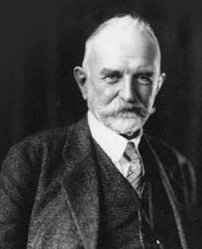A Quote by George Herbert Mead
Social psychology is especially interested in the effect which the social group has in the determination of the experience and conduct of the individual member.
Related Quotes
Every one of the constituent elements of a social group, in a modern city as in a savage tribe, is born immature, helpless, without language, beliefs, ideas, or social standards. Each individual, each unit who is the carrier of the life-experience of his group, in time passes away. Yet the life of the group goes on.
There is behavioral ecology, which looks closely at the difference different ecologies make to behavior and other features of animals and humans. There's evolutionary individual psychology, there's evolutionary social psychology. In Darwin's terms, evolution couldn't exist without variation, and variation is important in behavioral genetics. And so on, and so on. There are so many instances in which evolution actually sharpens the precision, I think, with which one can find out the importance of differences. We're interested in differences as well as commonalities.
A determination or an effect within a system which is no longer that of a presence but of a diffrance, a system that no longer tolerates the opposition of activity and passivity, nor that of cause and effect, or of indetermination and determination, etc., such that in designating consciousness as an effect or a determination, one continues - for strategic reasons that can be more or less lucidly deliberated and systematically calculated - to operate according to the lexicon of that which one is de-limiting.
We deem valuable whatever is likely to meet our needs or wishes (individual values) and whatever is likely to help protect or attain social goals (social values). However, this is not a dichotomy, for some individual values, such as truth, are needed to secure some social values, such as mutual trust, and some social values, such as peace, are required to pursue some individual values, such as good health.





































